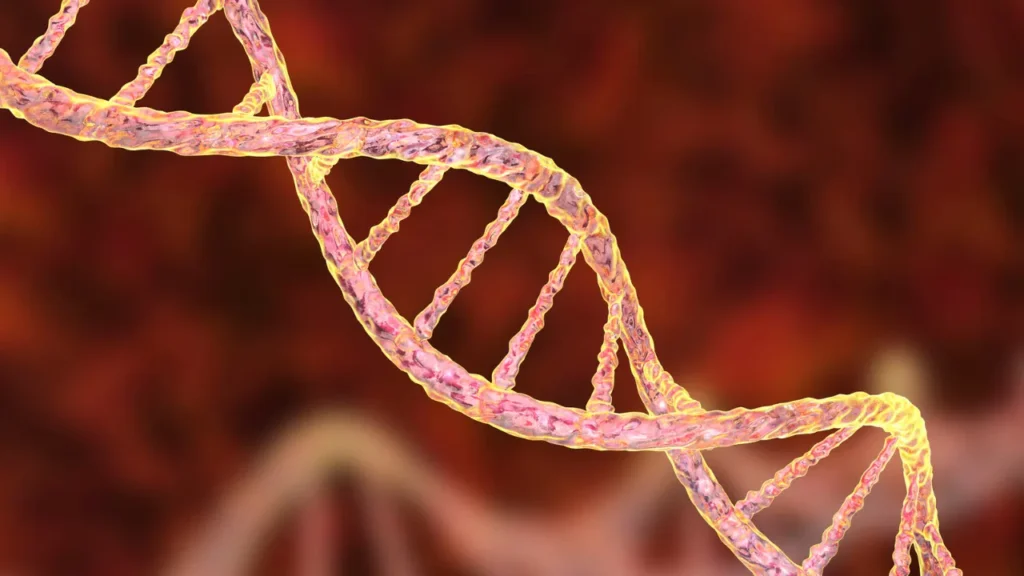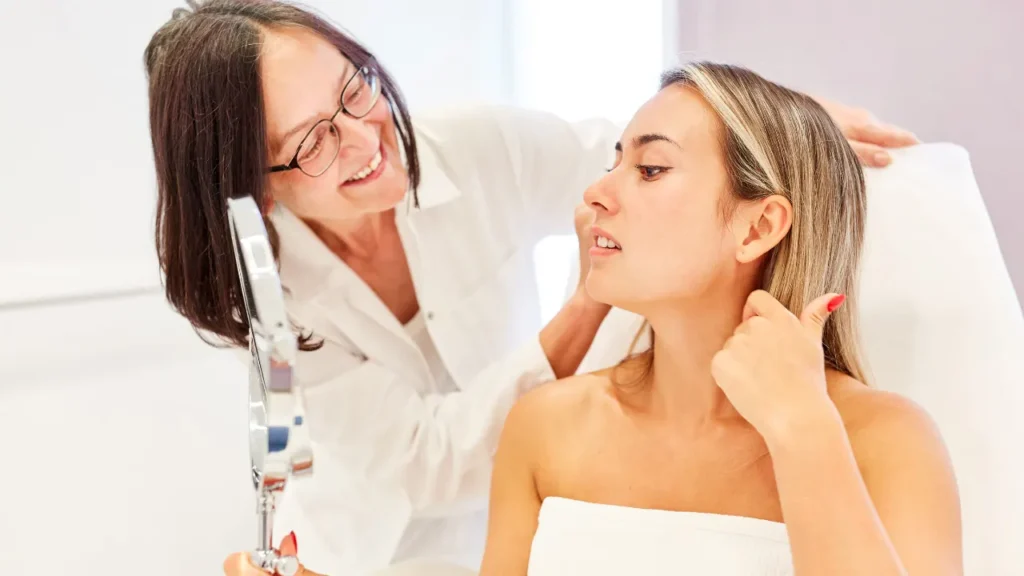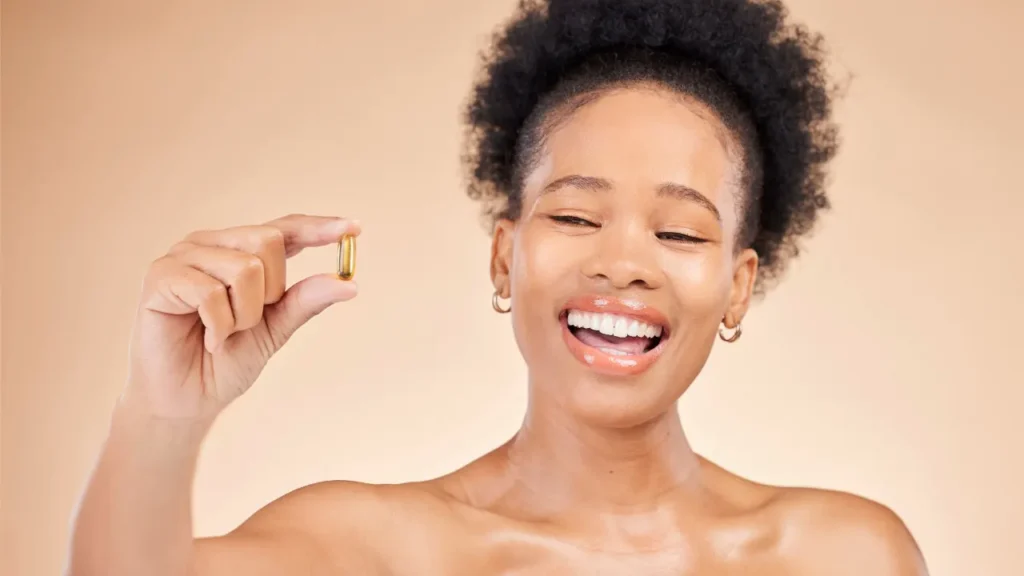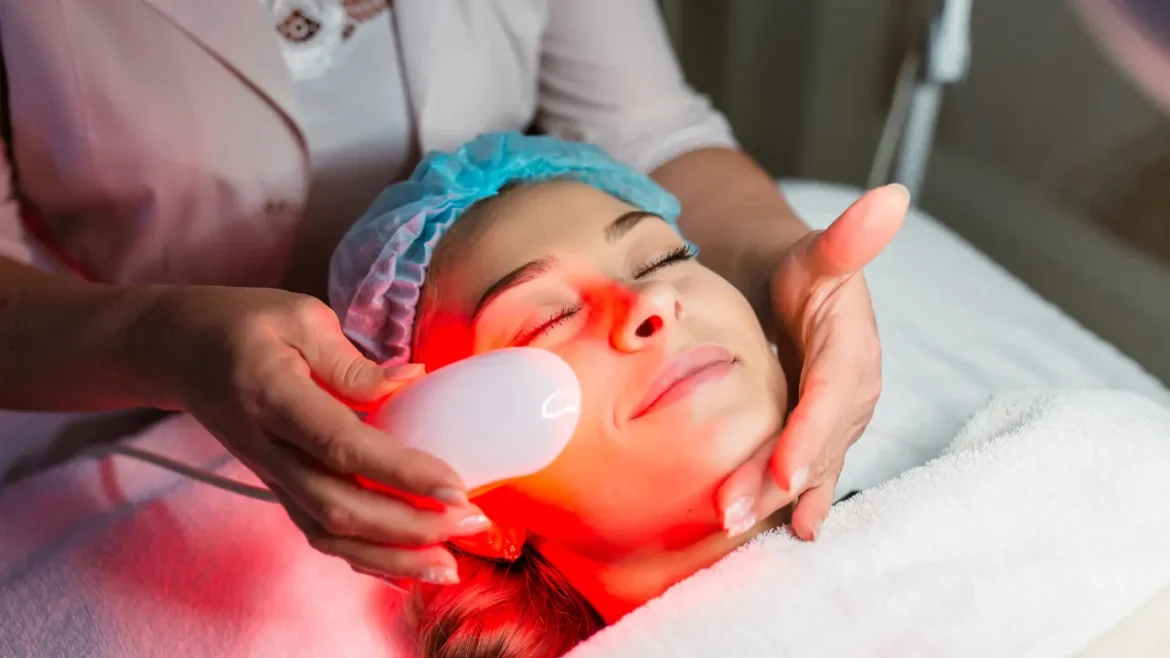Description
Dermatologists use lasers to target particular structures in the skin by emitting concentrated, highly energetic light beams. It is possible to treat a variety of skin issues with this tailored approach. According to the exact condition being treated, several kinds of lasers are used, including fractional lasers, hair removal lasers, and pulsed dye lasers. With the help of lasers, many different skin disorders can be successfully treated. Lasers are able to target and cure a number of prevalent skin disorders, including:
Acne:
By focusing on and eliminating the germs that cause the infection, laser treatments can assist with treating acne by lowering sebum production, irritation, and bacterial growth. Acne is frequently treated with laser therapies including pulsed dye and blue light lasers.
Pigmentation Disorders:
Sunspots, age spots, melasma, and freckles can all be efficiently targeted by and treated with lasers. To achieve a more equal skin tone, lasers that emit particular light wavelengths can break down extra melanin within the skin.
Scars:
Scars from trauma, surgery, and acne can all be made to look better with laser treatments. Ablative and fractional lasers can improve skin texture, lessen the depth of scars, and encourage rebuilding of the collagen.
Vascular Lesions:
Vascular lesions, including spider veins, port wine stains, and burst capillaries, can be targeted by lasers and treated as well. Intense pulsed light (IPL) and pulsed dye laser treatments can target and heat specific blood arteries without affecting the skin around them.
Pre-cancerous Treatment:
By accurately identifying and eliminating aberrant cells while conserving good tissue, lasers are useful in pre-cancerous therapies for conditions including Bowen’s disease and actinic keratosis. In selective photothermolysis, the targeted cells are destroyed by absorbing particular light wavelengths. The renewal of healthy cells of the skin is facilitated by laser treatments that increase collagen formation. The adaptability of lasers enables customized treatment depending on the size and position of precancerous lesions. There is little recovery time with laser therapy, and it may be carried out under the guidance of medical professionals, ensuring constant surveillance and evaluation to find and treat any advancement or recurrence.
Fine Lines and Wrinkles:
By increasing skin tightening and collagen formation, laser treatments can help reduce the visibility of fine lines and wrinkles. To restructure the skin and enhance its general texture and suppleness, ablative and fractional lasers are frequently used.
Hair Removal:
Popular long-lasting hair reduction therapy includes laser hair removal. The melanin in the hair follicles is the target of the laser, which damages them and prevents new hair development. For varied skin kinds and hair hues, several laser systems are used.
Tattoo Removal:
High-intensity lasers are used in laser tattoo removal to disintegrate tattoo pigments into minor fragments that the immune system of the body removes naturally. For comprehensive tattoo removal, several laser sessions are often necessary.
Skin Rejuvenation:
By enhancing skin texture, tone, and firmness, laser treatments can provide total skin rejuvenation. Fractional and ablative laser resurfacing techniques remove deteriorated skin layers, increase the generation of collagen, and encourage the development of new, rejuvenated skin.
Rosacea:
Redness, visible blood vessels, and flushing connected to rosacea are efficiently targeted and diminished by laser therapy like IPL. The laser light targets and eliminates aberrant blood vessels with precision, enhancing skin attractiveness.
Skin Tightening:
Deeply healing the skin layers using laser treatments can encourage collagen remodelling and contraction, improving skin firmness and tightness. Radio-frequency and non-ablative lasers are frequently used in skin tightening operations.
You May Also Like:
SCLERODERMA: DESCRIPTION, CAUSES, AND TREATMENT PROTOCOL
BEYOND THE HYPE: HOW CBD CAN HELP SENIORS ENJOY A BETTER QUALITY OF LIFE
Lasers: Description, Causes, And Treatment Protocol is an original (HealthXWire) article.
Possible Causes
Numerous variables, such as genetic propensity, environmental exposures, hormonal imbalances, and dietary and lifestyle decisions, might contribute to skin disorders. In order to effectively manage skin disorders like acne, melasma, rosacea, and hyperpigmentation, it is essential to identify and cure the underlying causes.

Exacerbating and Mitigating Factors
Several aggravating and mitigating factors can affect how laser treatments for skin issues turn out. Excessive sun exposure, poor post-treatment care, patient non-compliance, and ineffective laser settings can be aggravating factors. Correct patient selection, accurate pre-treatment assessment, adherence to treatment procedures, and sufficient sun protection are mitigating variables.
Standard Treatment Protocols
Based on the skin issue being treated, dermatologist’s will generally use standard treatment methods for laser therapy. These procedures frequently include a pre-treatment assessment, informed approval, consideration of the patient’s medical history, choice of the proper laser kind and settings, administration of the treatment, along with post-treatment care instructions. To get the best outcomes, treatment sessions can be spread out over a few weeks or months.


Treatment Options
Prescription Medications:
To maximize results, laser treatments are frequently combined with prescription drugs. For example, topical retinoids could be recommended to increase the effectiveness of laser therapy for acne alongside photo-damaged skin. After laser resurfacing processes, oral antibiotics or prescription topical treatments can also be used to avoid infection and advance recovery.
Over-the-Counter Formulations:
Prior to and following laser treatments, over-the-counter medications can be helpful in controlling skin issues. Sunscreens, moisturizers, and mild cleansers can be included in these formulas. Hyaluronic acid and ceramide-containing moisturizers can help keep your skin moisturized, whereas broad-spectrum sunscreens having SPF 30 or above can shield the skin from damaging UV radiation.
Nutritional Supplements:
The results of laser therapies for numerous skin diseases can be greatly improved with the help of nutritional supplements. The following are a few examples of dietary supplements that might be advantageous for skin issues treated with lasers:
- Omega-3 Fatty Acids
Fish oil supplements contain omega-3 fatty acids, which have anti-inflammatory characteristics that can help with problems like rosacea and acne. They can promote healthy skin and decrease inflammation.
- Antioxidants
Coenzyme Q10 and antioxidant vitamins A, E, and C can help shield the skin against oxidative damage brought on by free radicals. They can help improve the general condition of the skin, lessen inflammation, and encourage skin healing.
- Collagen Supplements
For the continued suppleness and firmness of the skin, collagen is a crucial protein. Hydrolyzed collagen peptides, which are frequently included in collagen supplements, can stimulate collagen synthesis and encourage healthier skin.
- Biotin
The maintenance of strong hair, skin, and nails depends on biotin, commonly referred to as vitamin B7. The skin’s overall health and look may be improved by taking biotin supplements.
- Hyaluronic Acid
A natural substance called hyaluronic acid aids in the skin’s ability to retain moisture. Hyaluronic acid supplementation may enhance skin plumpness and hydration, minimizing the look of fine lines and wrinkles.
- Zinc
An important element called zinc aids in wound healing and maintaining healthy skin. Skin diseases, including rosacea and acne may benefit from its ability to control oil production, lessen inflammation, and strengthen the immune system.
- Probiotics
Probiotics are helpful microorganisms that support a balanced gut microbiota. Skin health might benefit from a gut microbiota that is in equilibrium. Supplemental probiotics may help control inflammation and enhance skin conditions.


Natural and Herbal Remedies:
When treating various skin diseases with laser therapy, natural and herbal medicines can be used as adjunct therapies. The following are some ideas that might be useful, though it is imperative to speak with a healthcare provider before using any herbal or natural medicines:
- Aloe Vera
After receiving laser treatments, aloe vera gel’s calming and anti-inflammatory properties can help reduce skin redness and irritation while also promoting skin healing.
- Chamomile
Tea or extracts made from chamomile have antioxidant and anti-inflammatory properties. Applying lotions or compresses containing chamomile can help relax the skin and decrease redness.
- Calendula
The wound-healing and anti-inflammatory properties of calendula oil or cream are well-known. It might be used topically to calm and repair the skin after laser treatments.
- Tea Tree Oil
Anti-inflammatory and anti-microbial effects are present in tea tree oil. After following laser treatments, it might be helpful for avoiding infection and minimizing irritation.
- Green Tea
Antioxidants included in green tea extracts can aid in shielding your skin from oxidative harm. Green tea drinking or topical application might encourage the health and repair of your skin.
- Lavender
The calming properties of lavender essential oil help lessen skin irritability. To soothe the skin, apply dilute lavender oil topically.
- Witch Hazel
Owing to its anti-inflammatory and astringent properties, witch hazel is useful for lowering redness and inflammation. Following laser treatments, it might be compressed and used topically like a natural toner.
- Licorice Root Extract
Compounds in licorice root extract have skin-lightening and anti-inflammatory effects. After laser treatments, it can aid in reducing hyperpigmentation and redness.
- Coconut Oil
The anti-inflammatory and moisturizing properties of coconut oil are well-known. Especially when used following laser operations, it can help moisturize and calm the skin.
- Manuka Honey
Natural antimicrobial and wound-healing abilities exist in manuka honey. Administering medical-standard manuka honey on the treated region can promote healing and help avoid infection.


Conclusion
It is vital to keep in mind that herbal and natural solutions might not have scientific proof of their effectiveness for particular skin disorders or laser treatments. To verify their safety and compliance with the treatment plan, it is recommended to speak with a healthcare practitioner.
Additional resources for further reference
https://www.urmc.rochester.edu/encyclopedia/content.aspx?contenttypeid=85&contentid=P00324
https://dermatology.upenn.edu/clinical-programs/laser-treatment-for-skin-problems/
https://pubmed.ncbi.nlm.nih.gov/15491021/
Important Note: The information contained in this article is for general informational purposes only, and should not be construed as health or medical advice, nor is it intended to diagnose, prevent, treat, or cure any disease or health condition. Before embarking on any diet, fitness regimen, or program of nutritional supplementation, it is advisable to consult your healthcare professional in order to determine its safety and probable efficacy in terms of your individual state of health.
Regarding Nutritional Supplements Or Other Non-Prescription Health Products: If any nutritional supplements or other non-prescription health products are mentioned in the foregoing article, any claims or statements made about them have not been evaluated by the U.S. Food and Drug Administration, and such nutritional supplements or other health products are not intended to diagnose, treat, cure, or prevent any disease.
Table of Contents


